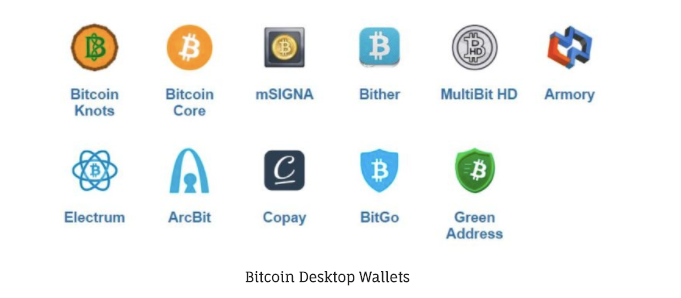
What if you lost all of your bitcoins tomorrow? What would you do?
Let me stress this point: “If you don’t own your private key, you don’t own your bitcoins.”
Yes, you read that right.
To understand private keys and public keys, let us look at an example. Consider a mailbox where you receive your physical mail.
It has a unique and specific number (an address). If someone has to deliver you a letter, he/she must know your house/flat number to deliver it.
And as the receiver, you have a private address (or key) to unlock the mailbox and collect your belongings.
In real life, do you give your keys to someone unknown?
No. Of course not.
You always keep track of your key and don’t jeopardize the contents inside of your mailbox.
Similarly, just like your house/flat number, anyone in the Bitcoin world can know your public address (Bitcoin address) to send you bitcoins. And to unlock (spend/send) those bitcoins, you would require your private address (or key) for which you need to take full responsibility, just like the keys of the mailbox.
What is a Private Address (or key)?
A private key is a secret, alphanumeric password/number used to spend/send your bitcoins to another Bitcoin address. It is a 256-bit long number which is picked randomly as soon as you make a wallet.
I feel that understanding the underlying technical aspect of keys is important so that your remain better informed and educated enough to take care of them.
In the next section, I will tell some basic technical aspects of these keys.
The degree of randomness and uniqueness is well defined by cryptographic functions for security purposes.
The Bitcoin private key it always starts with 5
What is a Public Address (or key)?
This is another alphanumeric address/number which is derived from private keys only by using cryptographic math functions.
It is impossible to reverse engineer and reach the private key from which it was generated.
This is the address used to publicly receive bitcoins.
The Bitcoin public address it always starts with 1
This address is always seen and broadcasted for receiving bitcoins. Users can make as many public addresses as they want to receive bitcoins.
What are Bitcoin private keys used for?
Private keys are used for making irreversible transactions. Yes, irreversible!
They are the key to spending and sending your bitcoins to anyone and anywhere. This irreversibility is guaranteed by mathematical signatures which are linked to each transaction whenever we use the private keys to send bitcoins.
And for each transaction, these signatures are unique, even though they are generated from the same private keys. This feature makes them impossible to copy. The user can confidently use the same private key again and again.
Moreover, the signatures are mathematically related to Bitcoin addresses. This math relation helps in confirming that the signatures are only of that particular account holder who wants to transfer bitcoins.
How do we keep private keys safe?
It is OK if you didn’t understand the above technical stuff.
You can still use Bitcoin as long as you keep your private keys safe.
These digital keys are crucial in the ownership of bitcoins. These keys are not stored on the Bitcoin network but are created and stored by the file/software (a.k.a. wallet).
A wallet stores these keys. There are a lot of types of wallets out there and some allow the private keys to be stored and guarded by the user.
Some keep the key safe on behalf of the user.
I have explored each type of safety measure for you so that you can choose the most effective wallet according to your needs.
Web and Mobile Wallets
Most of the web and mobile wallet software services in the Bitcoin market store your private key on your behalf on their servers.
They get stored in an encrypted form which only you can decrypt.
Desktop Wallets
Desktop wallets are relatively safe. In such wallets, once you install them on your desktop, you will get your Bitcoin address and private key in a downloadable and importable file.
These importable keys can be made password protected and stored on a memory stick or hard drive.
But once you lose the file of the private key, you will lose the bitcoins.
I am going to discuss each one of these in detail in upcoming articles.
Here are a few desktop Bitcoin wallets:

Hardware Wallets
Hardware wallets are basically an electronic invention made to store your private keys offline away from the vulnerable online environment so that they can’t be hacked.
Some hardware wallets come with security grid cards similar to some debit cards in order to verify the transaction. Some even have a little digital screen to verify your transactions.
They are temper proof and come with a limited user interface. In case your device is destroyed, as long as you have a backup code, you can retrieve your keys and bitcoins.
Some of the popular hardware wallets are:
- Trezor
- Ledger Nano S
Paper Wallets (Cold Storage)
Paper wallets are simply Bitcoin private keys printed on a piece of paper. It can have the Bitcoin public address also printed on it, but not necessarily. Paper wallets are an effective way of storing Bitcoin private keys offline.
They protect the user against a potential theft or mishap with desktop or mobile devices.
These kinds of wallets are also called “cold storage” because the keys are generated offline and never stored online or on a computer.
You can make your paper wallet from bitaddress.org, which is an HTML page specifically for this purpose only.
You can save the HTML page offline and remain disconnected from the internet to generate the keys. They can be printed on paper or stored as a soft copy on a USB or hard drive.
Conclusion
In a Bitcoin wallet, the most important thing is your private key because it will prove that the bitcoins you claim as your own are actually yours.
How are you keeping your private keys safe? Let us know what you do in the comments below!! Have a question about Bitcoin Private keys? Feel free to ask in the comment section below.
Original aticle: https://coinsutra.com/bitcoin-private-key/
You lost bitcoin private key?
On the following website you can find..
https://btctools.info